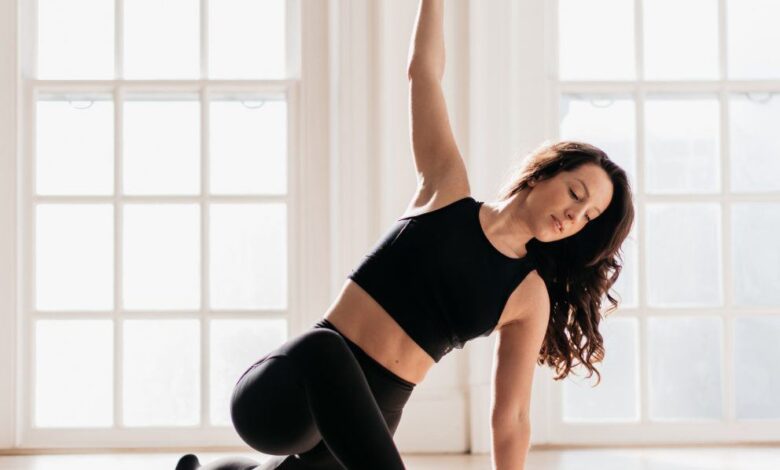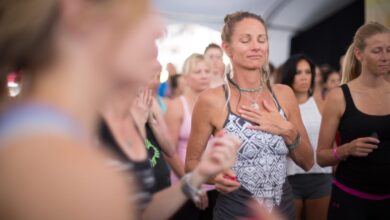Why Expecting Moms Need to Keep Moving

[ad_1]
Natasha Wood is a London-based trainer teaching yoga, barre and pilates classes that aim to correct poor alignment, build core strength after giving birth or injury and feel calm while lowering stress and anxiety for good. Explore Natasha’s offerings on Wanderlust TV: Power Barre 30 and her new course, Pregnancy Fit.
What practices does your new Pregnancy Fit course blend together? Is it more yoga-inclined or a “fusion” concept?
Pregnancy Fit is a fusion concept combining yoga, barre and pilates movement for a beautiful, well-rounded prenatal class.
What do you find the most challenging and rewarding when working with pregnant women?
The most rewarding part is seeing women progress throughout their pregnancy journey, watching how their movement develops and changes as their bump is growing. It’s so inspiring to see so many women who exercise right up to the last days of pregnancy because they started so early on and it allowed them to keep going.
Barre is also one of the safest forms of exercise for prenatal training. The most challenging aspect can be working with a woman who is experiencing many different symptoms throughout pregnancy, you have to make sure you are giving that client the correct and most safest exercises for them.
How early in pregnancy can one start taking prenatal exercises?
I always say it’s wise to wait until around 9-12 weeks, especially if you have been trying for a while or have experienced miscarriage. The Centre for Exercise says most women can continue their normal regime until around 10-12 weeks and then start taking more tailored prenatal classes.
Listen to your body and what you need, even the most experienced exercisers take a break for the first trimester, or at least keep it gentle until they start proper prenatal classes around 10-12 weeks.
Is there any benefit in taking prenatal classes while a woman is trying to conceive?

Photo by Lucas Favre
I think it can have a positive impact on you because you’re sending a signal to your mind and body that you’re ready to get pregnant. You’re deliberately preparing the body for birth and it’s always good to have an idea beforehand of what you can and can’t do when it comes to exercise and pregnancy.
Are core-building exercises safe during pregnancy?
Yes, most abdominal exercises are safe with exceptions and adaptations. There will be modifications for things like planks, crunches and twists. Before pregnancy it’s good to make sure the back muscles and core are strong as these will help you have less pain during labour and a quicker recovery after. A strong core will help with balance and stabilization during pregnancy.
Pelvic floor seems to be the crown jewel of any prenatal and postnatal training. Should we expect a lot of pelvic floor work in your new course?
There will be emphasis on pelvic floor work, absolutely! When preparing for birth we want to focus on relaxing the pelvic floor while also building awareness around this area, and work on isolation using specific exercises. Then, when it comes to postnatal training, we want to focus on tightening the pelvic muscles back up using targeted exercises to again isolate that area.
[ad_2]
Source link






